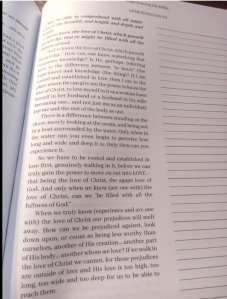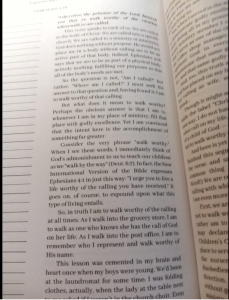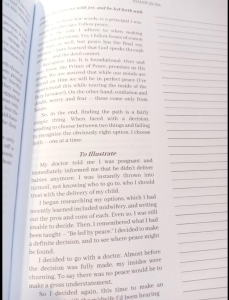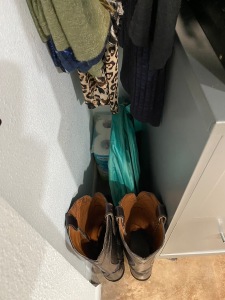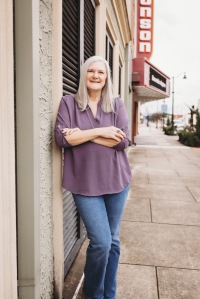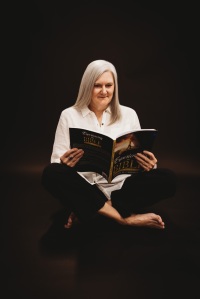I’ll bet you never expected to see those words on this page. At least, I hope not. They are words I literally cannot imagine saying to a single soul, no matter how evil they might be.
Flashback Time
It was late on a starlit evening, so many years ago that I’ve no idea how long ago it was. I was standing outside after a meeting, talking to a dear, sweet friend who was also my pastor’s wife. We were discussing the Rapture and I told her how very much I wished it would happen right then. Her response surprised me.
I can’t remember exactly what she said, but it was something along the lines of, “Tammy, I know you don’t really mean that. There are too many people going to Hell, and you want them to get saved first.”
I learned a few things about myself that night.
- I’d not even been considering those people. All I knew was that my life was hard and I wanted the hard parts to be over ASAP. Yes, I was married to a narcissist and daily paid the price for that relationship, but that was some pretty narcissistic thinking on my part too!
- The Rapture, in that moment, was an escape plan more than anything else, and that is not what the Rapture is all about! The Rapture is about the Bride going to be with her Husband!
- The fact that I wasn’t thinking about those people meant two huge things.
a. I didn’t have a genuine revelation of Hell.
b. I didn’t truly have the love of God in my heart if I wanted anyone to go there.
It’s amazing how God can completely humble you with a few, well-chosen words from a friend! (The book of Proverbs talks about that!)
My heart started changing that night.
I got on my knees before God and begged Him to do some things in me.
I asked Him to teach me to love like He loves; I knew this was my greatest weakness. It’s taken years for me to get where I am today, and I have definitely not arrived. Walking in love is a continual choice, and I do fail. When I fail to share Jesus with someone God urges me to talk to, whether out of hurry or even fear, it’s because I don’t have enough love. If I want someone to suffer, it’s definitely because I don’t have enough love.
Love is a choice that requires action. It is also extremely powerful. It was love for God, and choosing to love my husband, that empowered me to stay married to him and take care of him when he’d have died if I’d walked away. Had God not empowered me to love him, I couldn’t have done it. People say they admire me for how I spent those last 12 years of his life, but it wasn’t me; it was God’s love working through me – because I let it, because I begged for it.
The other thing I asked God to do was give me a revelation of eternity so that I could really understand what it means when someone goes to Hell. Just sitting here thinking about the large numbers of people who are already there, and those who will be, has me in tears. Hell was not created for man, but for the fallen angels. Man chooses to go there when he refuses to accept Jesus’ work on the cross – and he has no idea what he’s doing.
Deception is the order of the day, and man has fallen for it so completely.
The world we live in is off the rails. In Matthew 24:37-39, Jesus talks about the last days and what this world will be like. “But as the days of Noah were, so shall also the coming of the Son of man be.” Take a look at Noah’s story in Genesis and you’ll see how depraved that world had become, and just how much our world today resembles it.
The bottom line is that God essentially decided to destroy everything and start over.
So He had Noah build the boat, got Noah’s family and a bunch of animals in the boat, and shut the door. Yes, God shut the door; once the decision was made no one was permitted to change their minds. And right up until the rain started to fall, the people ignored Noah and his God, carrying on with their own, sinful lives. Yeah, much like today.
And much like those people, by their own choice, were left outside in the flood, a great multitude of people will be left here on Earth when the Church is called away. This event will be just as unexpected as the other, as Jesus said in verse 39, they “knew not until the flood came, and took them all away.”
Here’s the reality, after the Rapture of the Church those who are left behind will see hell on earth. The devil will have his opportunity to set up his kingdom just like he wants it, and he’ll subjugate everyone. He’ll only have seven years to do his evil work, but he’ll make the most of the time he’s given, and pretty much everyone on Earth will end up worshipping him.
Yes, most of those who remain here, according to prophecy, will end up in Hell. And if they do get saved, their lives, until they are martyred, will be hell on earth.
So yes, getting back to that original flashback, while I do pray, “Maranatha!,” which can be translated as, “Come quickly, Lord Jesus!,” I also pray, “But God, please, save every soul you can possibly save before calling us home.”
Because I don’t want anyone, ANYONE, to go to Hell. It’s not just a limited prison sentence. They won’t do time for a while and then get released to Heaven. It’s FOREVER. And while forever is my favorite word because it’s holds so much promise, it is a painful word when I think of Hell and those who will go there.
My husband spent many years not right with God. I’m sure that comes as no surprise to those who follow me. No matter how much he hurt me, I did not want him going to Hell, and I rejoice that he got right with God before the end. I have relatives and friends who have lost family members who were murdered. I don’t want those murderers going to Hell; I want them to get saved before they die!
Anything else would be ungodly, because God makes it clear in His Word that He wants the same.
Don’t go to Hell!
Celebrating Jesus!
Tammy C

